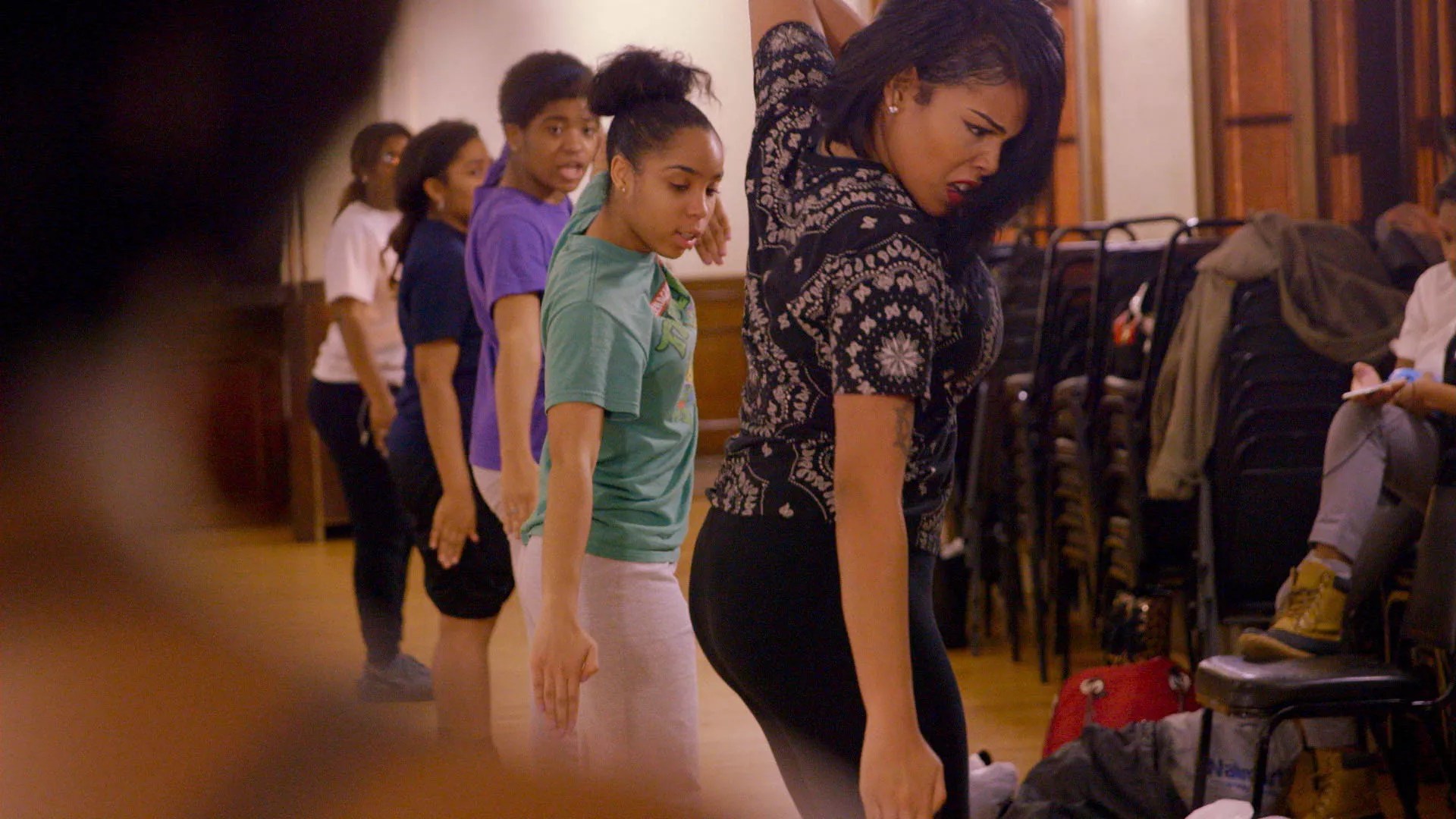
William Gray/Courtesy of Fox Searchlight Pictures.

Audio By Carbonatix
“She said, ‘The next time you bring your cameras to school, you’re going to shoot the step team.'”
The command came from Blessin Giraldo, one of the stars of the new documentary Step. It was received by the director, Amanda Lipitz, and she obeyed.
A Broadway producer with shows like Dirty Rotten Scoundrels and Legally Blonde to her credit, Lipitz had also shot some documentary footage, at the request of her educator mother, of the Baltimore Leadership School for Young Women, for use in fundraising events. When she returned to BLSYW, it was to turn her cameras on the school’s step dancing team.
“Step,” for the uninitiated, is a form of ensemble dance in which the body is essentially turned into a percussion instrument. It has a long history in African and African-American communities, and has been especially associated with Greek life on traditionally black college campuses.
This year, make your gift count –
Invest in local news that matters.
Our work is funded by readers like you who make voluntary gifts because they value our work and want to see it continue. Make a contribution today to help us reach our $30,000 goal!
Lipitz’s movie, which opens this weekend in the Valley, features a trio of seniors, all of them members of the inner-city school’s step team: the exuberant, glamorous Giraldo, a commanding step performer, the quietly brilliant Cori Grainger, and the dryly witty Tayla Solomon. It follows them as they attempt to regain the team’s past glory after a disappointing previous season, navigate the turbulence of their senior years, and get into college. Not necessarily, one hopes, in that order.
Step features several of these numbers, expertly shot by Lipitz and dazzling edited by Penelope Falk. But exciting as this musical content is, it isn’t principally what makes Step one of the best movies of the year. It’s almost impossible to watch Step and not fall in love a little with these three young women, and invest emotionally in their fates.
When you see them slacking off academically, or acting out, or getting anywhere near boyfriends, you may feel an almost physical urge to drag them to safety, and when, in stressful moments, they address the camera and try to remain upbeat, only to succumb to tears, it’s wrenching. The film is also a vivid, complex, and moving portrait of their mothers, and of their surrogate mothers at the school – coaches and counselors struggling to find them the best opportunities possible, and to help them stay out of their own ways.
I had the chance to sit down and chat with the Giraldo, Grainger, and Solomon recently, when they were in Phoenix to promote Step, while director Lipitz, who has known them since they were preteens, looked proudly on. I asked them how aware they were of the presence of camera crews in their lives, and how much it had affected their behavior.
“Not at all. I think I speak for all of us,” Grainger says. “Sometimes it was a little bit hard, having the crew around, but I just dealt with it, because we were doing it for a bigger purpose.”
“Sometimes she’d give me a look, and I knew she’d had enough for the day,” Lipitz says. “Then we’d get out.”
Solomon agrees that the effect of the cameras was minimal: “Whatever was going to happen in our senior year was going to happen, whether there were cameras there or not.”
Giraldo adds, “I had way more to focus on than whether there were cameras around,” though she admitted that being filmed may have added extra urgency to her step dancing. “When it came to practice or performance, you wanted to put your best foot forward.”
I also ask, considering the painful emotional content of some scenes, if the finished movie is hard for them to watch.
“I think it’s the complete opposite,” Solomon says.
For Giraldo, however, “It is hard. In some parts I still continue to get that same old feeling. But it just teaches me to be resilient, to be confident, and never give up.”
It’s a reasonable lesson, as – spoiler alert – all three of them are now about to start their second year in college. Academic star Grainger is at Johns Hopkins, majoring in computer science-international studies, with a minor in Spanish. She’s also studying Mandarin.
“In the next few years, I see myself working for a big tech firm,” she says.
Solomon is at Alabama A&M, studying Urban and Transportation Planning. “I want to start rec centers,” she says, and she also has an opinion about an idiosyncrasy of traffic practice in Baltimore: “I don’t like how you can park in the middle of the street.” Her two costars firmly voice their agreement.
“It’s really stu…” Solomon begins, then stops herself before using the judgmental word and switches to “It’s inconvenient.”
Giraldo, whose path to college seems most precarious in the film, now attends Coppin State University, where she studies business marketing, graphic design, and communications: “I want to be a business guru, from getting you on billboards to getting you on TV… I also want to start a scholarship called Blessing the Community, giving children a second shot at college.”
Ambitious as these all plans sound, she has others, including:
“I do plan on being on Broadway.”